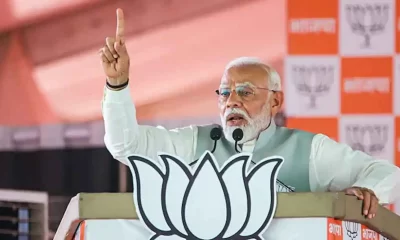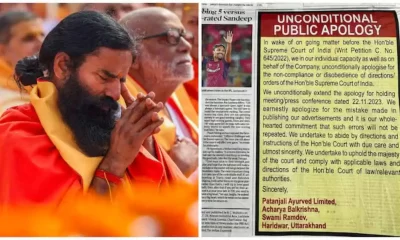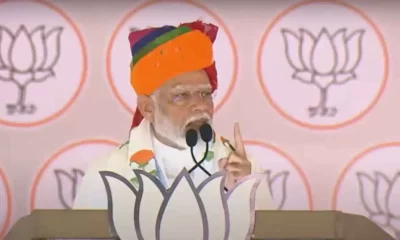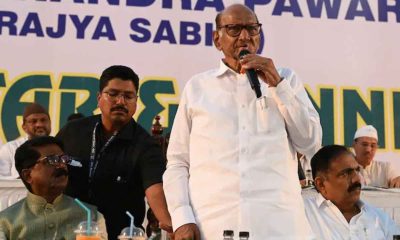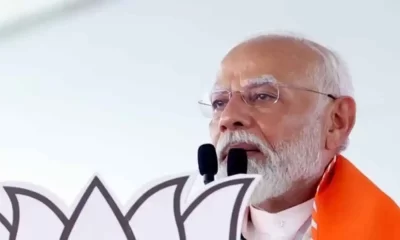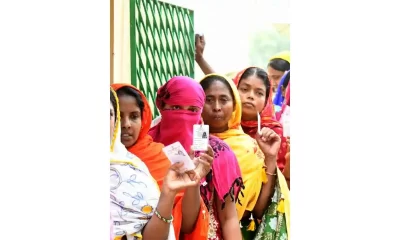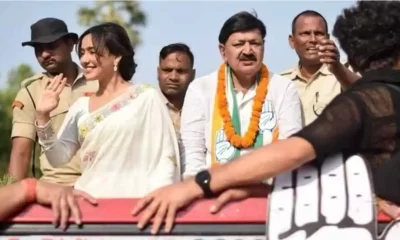India News
Rafale deal: Reports find loopholes in Centre’s explanation submitted to Supreme Court
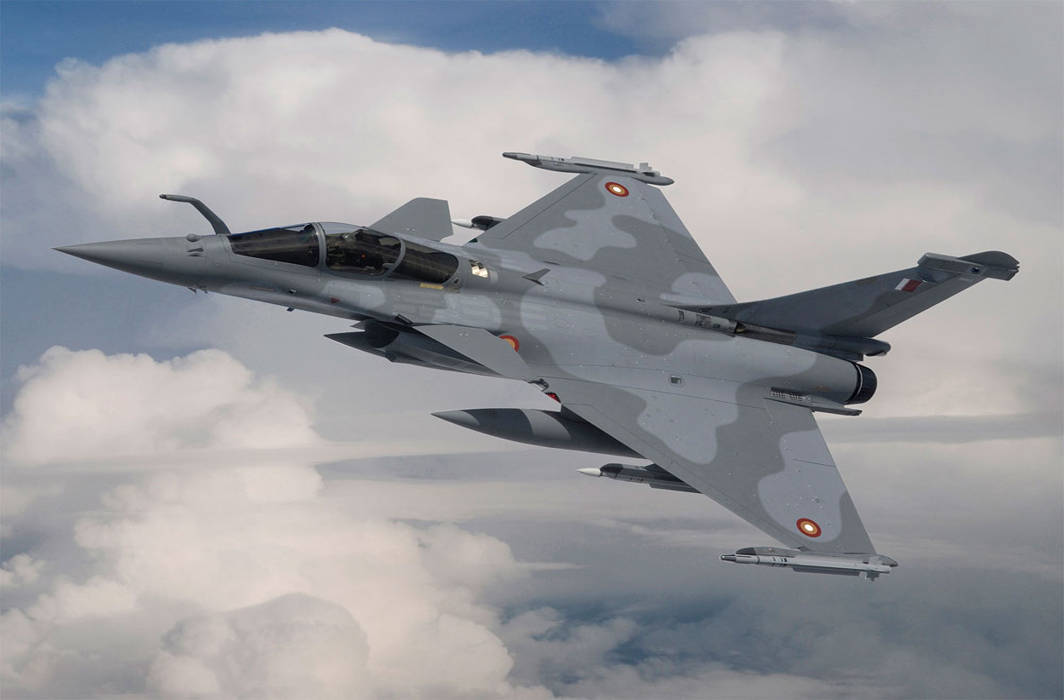
[vc_row][vc_column][vc_column_text]Several reports have pointed out gaps and loopholes in Narendra Modi government’s submission to the Supreme Court (SC) giving details of the process by which it arrived at the decision to buy 36 Rafale fighter aircraft from France while cancelling a tender for 126 Rafales, of which 108 were to be built in India.
The government had also submitted details about the price and how it was arrived at in a sealed cover for the judges’ perusal only. The details of the decision making process and the pricing were submitted in response to the SC order on October 31.
A redacted version of the submission on the procurement process was shared with the petitioners as well in accordance with the court’s directions.
Dissatisfied with the government’s reply, the petitioners plan to file a rejoinder, said media reports.
The government’s reply was also analysed by some media organisations which found that the government’s submission suffered from several loopholes or discrepancies with facts.
The first aspect pointed out was that PM Narendra Modi announced purchase of 36 Rafale aircraft before Cabinet Committee on Security’s (CCS) approval. On 10 April 2015, Indo-French joint statement was issued on by the PM Modi and France President Hollande, which stated: “Government of India conveyed to the Government of France that in view of the critical operational necessity for multi role Combat Aircraft for Indian Air Force (IAF), Government of India would like to acquire 36 Rafale jets in fly-away condition as quickly as possible…”
PM Modi made the announcement first and then the negotiation kick-started between India and France, after which the CCS’ approval was obtained. PM Modi’s statement was a fait accompli, the CCS’ approval was just a formality.
The government has claimed in the documents that procedure was followed in the purchase of the Rafale aircraft.
Writing in Business Standard, defence expert Ajai Shukla said that while claiming that “all the requisite steps… have been followed”, the 16-page submission makes it clear the government did not take the most basic steps that are fundamental to any procurement and which are spelt out in detail in the Defence Procurement Policy of 2013 (DPP-2013), which governed the 36-Rafale purchase.
The government failed to involve the Indian Air Force (IAF) in formulating “service qualitative requirements” (SQRs), which specify the capabilities of the equipment being procured.
Nor was the next step taken, which is the formulation of a statement of case (SoC), in which the military must justify the procurement.
The SoC is forwarded through two key acquisition committees – the Services Capital Acquisition Plan Categorisation Committee (SCAPCC) and the Services Capital Acquisition Plan Categorisation Higher Committee (SCAPCHC) – to the Defence Acquisition Council (DAC), which accords an Acceptance of Necessity (AoN) to go ahead with the procurement.
The SCAPCC and the SCAPCHC decide whether the equipment is to be built in India, bought from abroad, or a mixture of the two.
Instead of going through these foundational steps, which would have involved the IAF in the decision, the government’s submission to the SC indicates that it assumed that the clearances granted for the 126 medium multi-role combat aircraft (MMRCA) procurement were also valid for the 36-Rafale contract, even though these were two fundamentally different procurements. “The acquisition process for MMRCA had reached commercial evaluation stage after completion of all the standard processes as per DPP,” says the submission.
“The background of the case was brought to the notice of the DAC where it was mentioned that operational capability of 36 Rafale aircraft will be in accordance with the SQR for the procurement of MMRCA.”
This statement of the government does not square with its assertion – made to justify the higher price of the 36 Rafales – that a range of “India-Specific Enhancements” made the operational capability of the 36 Rafales significantly higher than the Rafales in the MMRCA tender.
The government has submitted, it pursued the procurement as an Inter-Governmental Agreement (IGA) with France, for which the DAC accorded clearance on May 13, 2015. The Centre informed the SC that an Indian Negotiating Team (INT) was constituted to negotiate the terms and conditions of the procurement of 36 Rafale aircraft. The negotiation started between the INT and French side in May 2015, a month after PM Modi announced that Rafale aircraft will be purchased.
The INT had 48 internal meetings and 26 external meetings with the French side between May 2015 and April 2016. The INT submitted its final report on 4 August 2016 and recommended the case to be pushed for CCS’ approval and signing of the agreement with Dassault Aviation.
Finally, on 24 August 2016, the CCS gave its approval for signing of Inter-Governmental Agreement (IGA) for the purchase of 36 Rafale aircraft.
The IGA was signed by Defence Minister Nirmala Sitharaman and the French Defence Minister on 23 September 2016.
On what grounds did PM Modi decide to make the announcement of the purchase of Rafale aircraft without CCS’ approval, which came more than a year later?
The initial tender for 126 Rafale jets could not be concluded, the government has said, due to “unresolved issues related to 108 aircraft to be manufactured in India”.
The two main issues involved production problems and questions of contractual responsibility. According to the documents filed by the Centre, it would have taken Hindustan Aeronautics Ltd “2.7 higher man-hours” to make the jets in India, when compared to the time it would have taken Dassault to make them in France. And secondly, issues related to “contractual obligation and responsibility” for the 108 jets that would be made in India could not be resolved.
“[These] issues remained unresolved for more than three years. This delay impacted the cost of acquisition, as the offer was with in-built escalation and was influenced by the Euro-Rupee exchange rate variations. As the contract negotiations reached a stalemate and RFP compliance could not be ensured, the process for RFP withdrawal was initiated in March, 3 2015,” the government says.
The government version flies in the face of reports that HAL and Dassault managed to iron out any differences they had and actually signed a work-share contract. Former HAL chief Suvarana Raju is also on the record as having said this contract was given to the Modi government and that HAL would “guarantee” aircraft it made, in an allusion to the problems of contractual responsibility being resolved.
The Centre’s primary justification for this is that while the long and inconclusive MMRCA process dragged on, India’s enemies in the same time managed to induct “modern aircraft and upgraded their older versions”, and thus posed a threat to the country’s defence.
Nowhere in the documents submitted to the SC does the BJP government clarify whose decision it was to purchase 36 aircraft instead of the 126 asked for by IAF and being negotiated under the previous deal.
“The combined effect of our own reducing combat potential and our adversaries enhancing their combat potential made the situation asymmetrical and extremely critical. An urgent need was felt to arrest the decline in the number of fighter squadrons in IAF and enhance their combat capabilities,” the document says, on why a smaller deal was then decided upon.
The BS analysis also points to the paradox of the government citing a growing enemy air threat to justify cancelling the 126-Rafale tender and replacing it with fewer fighters.
The Centre remains silent on how it went about it. For instance, the government meticulously lays out every part of the acquisition process from May 2015 onwards, which is when the deal was presented to the Defence Acquisition Council, but is surprisingly short of details on what happened in the weeks and months leading to the April 2015 announcement.
If there is some record, the Modi government doesn’t seem intent on sharing it. This is an important detail, because opposition parties like the Congress have alleged that the deal was changed at the last-minute to benefit Anil Ambani’s Reliance Defence.[/vc_column_text][/vc_column][/vc_row]
2024 Lok Sabha Elections
Bollywood actor Neha Sharma campaigns for her father Ajit Sharma in Bhagalpur, Bihar
The Bollywood actor posted a video on her Instagram handle which showed her journey through various districts of Bihar, including Kishanganj, Banka, Purnea and Katihar. She was dressed in a traditional salwar kameez and was seen greeting and encouraging the public to cast their votes.
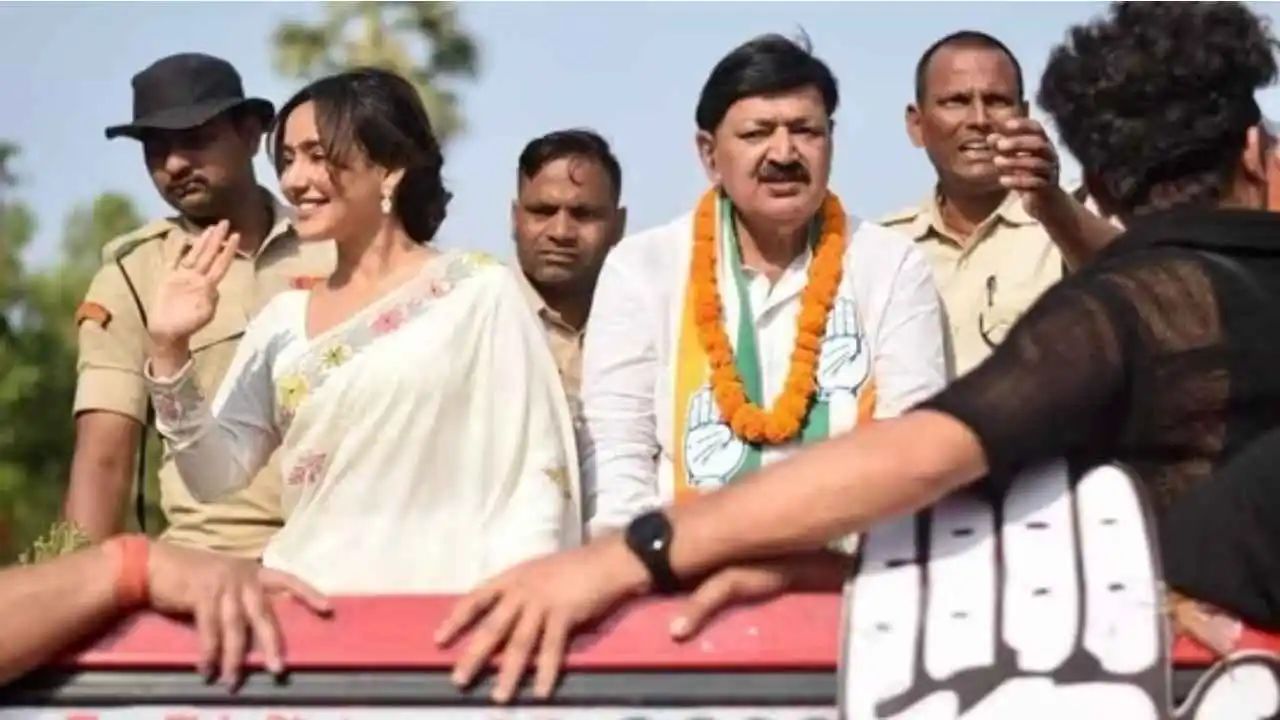
Bollywood actor Neha Sharma’s recent participation in a roadshow in Bihar has taken the internet by storm. Sharma, known for her roles in films like Tum Bin 2 and Crook, was seen supporting her father, Ajit Sharma, who is contesting from Bhagalpur Lok Sabha seat on a Congress ticket. The roadshow came amid speculations that the actor might enter politics. But, it is now clear that she was just campaigning for her father.
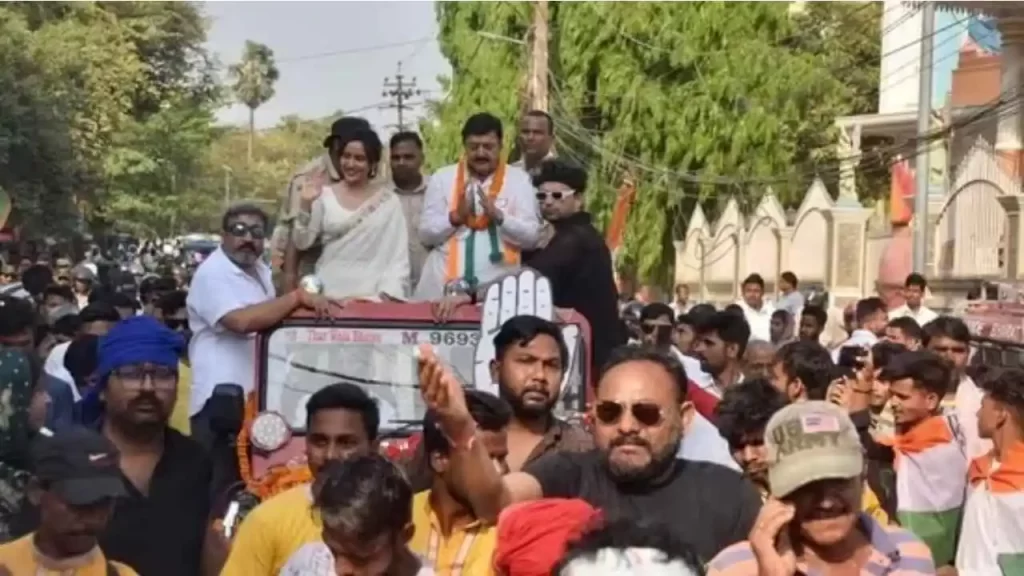
The Bollywood actor posted a video on her Instagram handle which showed her journey through various districts of Bihar, including Kishanganj, Banka, Purnea and Katihar. She was dressed in a traditional salwar kameez and was seen greeting and encouraging the public to cast their votes.
The actor received a warm reception and love from a large crowd in Pirpainti and Kahalgaon during her roadshow. She wrote on Instagram that it is said when someone gives one a place in their heart, then they live there forever. She said her heart is full of all the love and support she was receiving from the people. She thanked the people for the warm welcome she got in Pirpainti and Kahalgaon. Aapka pyar sar ankhon par.
Another video, circulating on social media showed the actor actively participating in her father’s election campaign in Bhagalpur. The election to the Bhagalpur Lok Sabha seat is set to take place in the 2nd phase on April 26. Ajit Sharma is representing the Congress and is up against JDU’s Ajay Kumar Mandal in this seat.
Earlier, there had been rumours and speculations that Neha Sharma might join politics. But many reports have clarified that she is not making her political debut yet. The Bollywood actor had been offered the opportunity to join politics by her father Ajjit Sharma but she is currently focusing on her acting career.
Education
Farmer’s son Nilkrishna Gajare Nirmalkumar from Maharashtra scores 100 NTA score in IIT-JEE Mains 2024
Nilkrishna Gajare’s father is a farmer and had to discontinue his own education after Class 12 as he faced financial difficulties. Gajare faced financial challenges growing up. However, his unwavering dedication and strategic approach to preparation set him apart from the crowd.
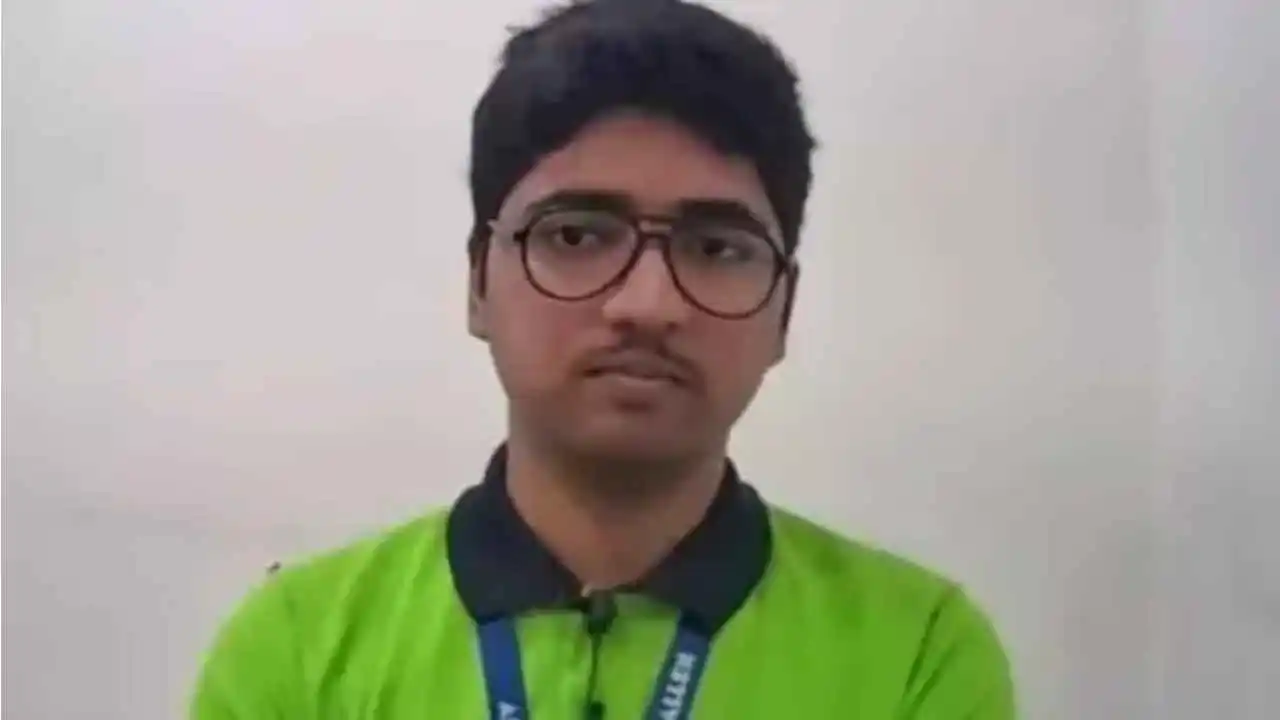
Nilkrishna Gajare, who hails from Maharashtra’s Washim, achieved an extraordinary feat by securing a perfect score of 100 in the JEE Main 2024 examination. His journey from humble beginnings to the pinnacle of success is a source of inspiration for many people.
Nilkrishna Gajare’s father is a farmer and had to discontinue his own education after Class 12 as he faced financial difficulties. Gajare faced financial challenges growing up. However, his unwavering dedication and strategic approach to preparation set him apart from the crowd, which resulted in his remarkable achievement of emerging as topper of one of India’s toughest Engineering entrance exams.
Nilkrishna Gajare had a strategic plan that helped him succeed in IIT-JEE 2024. According to Nilkrishna persistence is important and one should never stop trying until they understand a topic. He said being curious and asking questions are important traits of a good student. He said one should not be ashamed of asking questions.
Nilkrishna spent around 10-15 hours every day studying on his own for the JEE Main exam. He mentioned that he used his class notes for Physics and Physical Chemistry. For organic chemistry and inorganic chemistry, he relied on both notes and practice questions.
As for Mathematics, he believed that practicing regularly was the most important thing for him. Other interests of Nilkrishna include archery. He has participated at both state and national levels, and he finds joy in the sport. He said archery helps him understand the importance of focusing his attention on his goals. Nilkrishna likes watching movies and said they are a great source of enjoyment and relaxation.
He likes to watch a movie after exams and occasionally treats himself to one each week too. Gajare aims to keep up the pace for the JEE-Advanced exam and hopes to get into the IITs. He said he wants to secure admission in IIT-Bombay in the computer science branch.
2024 Lok Sabha Elections
Lok Sabha elections: Samajwadi Party chief Akhilesh Yadav files nomination from Kannauj
The Samajwadi Party has announced Akhilesh Yadav as its official candidate for the Kannauj Lok Sabha seat today
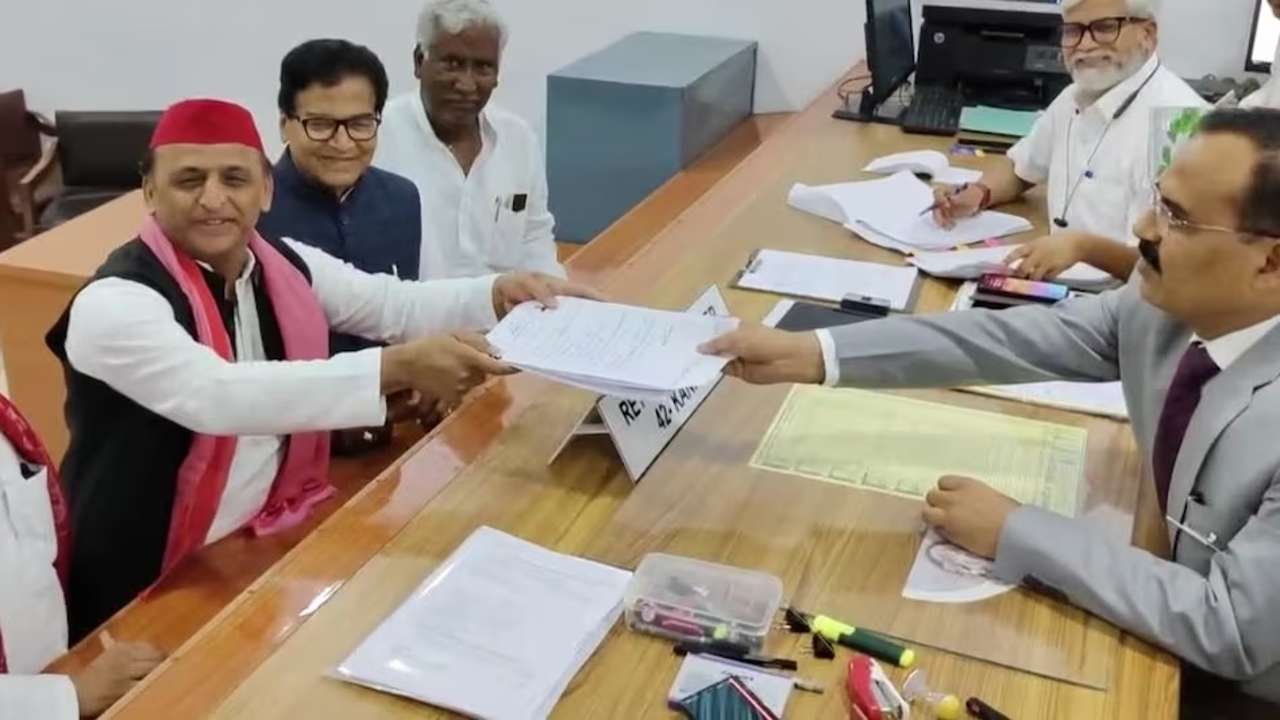
Samajwadi Party (SP) chief Akhilesh Yadav, submitted his nomination for the Kannauj Lok Sabha constituency ahead of tomorrow’s second round of voting. In front of Ram Gopal Yadav and other party leaders, the chief of the SP, who had previously contested the seat in 2000, 2004 and 2009, submitted the nomination.
Speaking with media, Ram Gopal Yadav said that SP would win the seat by a huge margin. The BJP candidate might lose his deposit in the seat, he said.
The Samajwadi Party has completely reversed its earlier plan to field former Mainpuri MP Tej Pratap Singh Yadav as their candidate, which is a significant political development.
Earlier, Akhilesh Yadav told reporters, people will find out when the nomination takes place, in reference to the speculations that he will contest for the seat. The historic victory of Kannauj is the subject of inquiry.
The former chief minister continued, the people have decided that the India bloc is coming as the future and the BJP will be history in this election.
Notably, elections for the Kannauj seat are scheduled for May 13, which would intensify the political drama that is now playing out in Uttar Pradesh. Previously regarded as the Samajwadi Party’s stronghold, the seat was lost by the party in the 2019 election when Subrat Pathak of the BJP won with a resounding victory.
The candidates competing for the following Uttar Pradesh seats will find out their destiny in the second round of voting, which is scheduled for tomorrow, Amroha, Meerut, Mathura, Baghpat, Aligarh, Ghaziabad, Gautam Buddh Nagar, and Bulandshahar.
Notably, two Bollywood celebrities running as BJP candidates in the second round are Hema Malini from Mathura and Arun Govil from Meerut. There are 91 contestants from UP competing in the second phase.
The seats in Gautam Buddha Nagar and Mathura are up for grabs, with a maximum of 15 applicants per seat. In Bulandshahr, six candidates are vying for the presidency. There are twelve contenders running in Amroha, eight in Meerut, seven in Baghpat, and fourteen in Ghaziabad and Aligarh.
1,67,77,198 votes will decide these candidates’ fates.
-
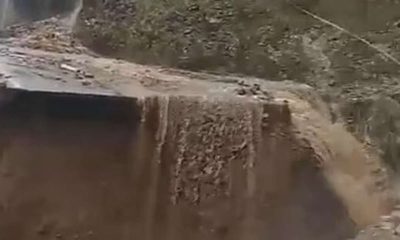
 India News4 hours ago
India News4 hours agoLandslide hits Arunachal Pradesh, highway linking Indo-China border affected
-
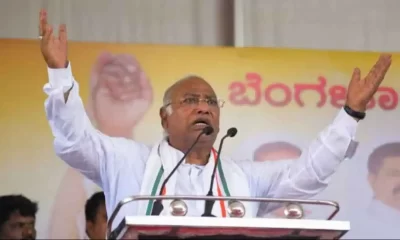
 2024 Lok Sabha Elections21 hours ago
2024 Lok Sabha Elections21 hours agoMallikarjun Kharge vows to continue politics till his last breath to defeat BJP
-
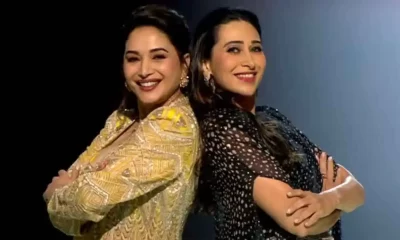
 Entertainment23 hours ago
Entertainment23 hours agoMadhuri Dixit, Karisma Kapoor recreate Dil To Pagal Hai dance battle on Dance Deewane
-
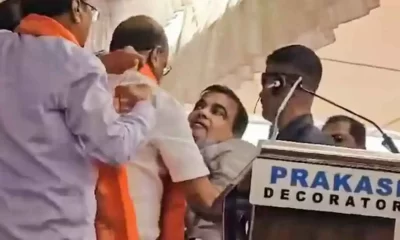
 2024 Lok Sabha Elections22 hours ago
2024 Lok Sabha Elections22 hours agoNitin Gadkari says he’s better now after collapsing at election rally in Maharashtra’s Yavatmal
-
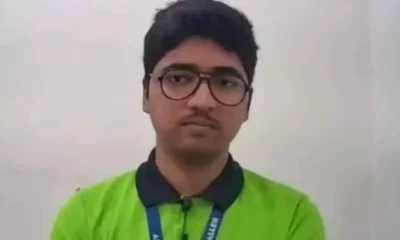
 Education2 hours ago
Education2 hours agoFarmer’s son Nilkrishna Gajare Nirmalkumar from Maharashtra scores 100 NTA score in IIT-JEE Mains 2024
-
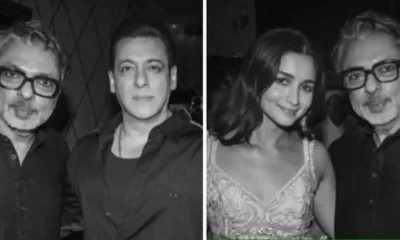
 Entertainment4 hours ago
Entertainment4 hours agoBollywood stars Salman Khan, Alia Bhatt, Rekha, Sonakshi Sinha, Aditi Rao Hydari attend Sanjay Leela Bhansali’s Heeramandi premiere
-

 India News5 hours ago
India News5 hours agoTamannaah Bhatia summoned in illegal IPL streaming app case, to appear before cyber cell on April 29
-
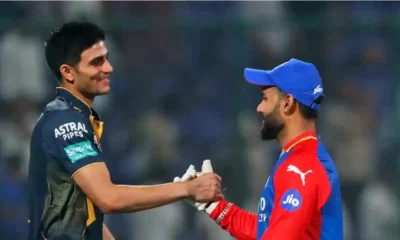
 Cricket news5 hours ago
Cricket news5 hours agoIPL 2024: Rishabh Pant, Axar Patel score half centuries as Delhi Capitals beat Gujarat Titans by 4 runs

